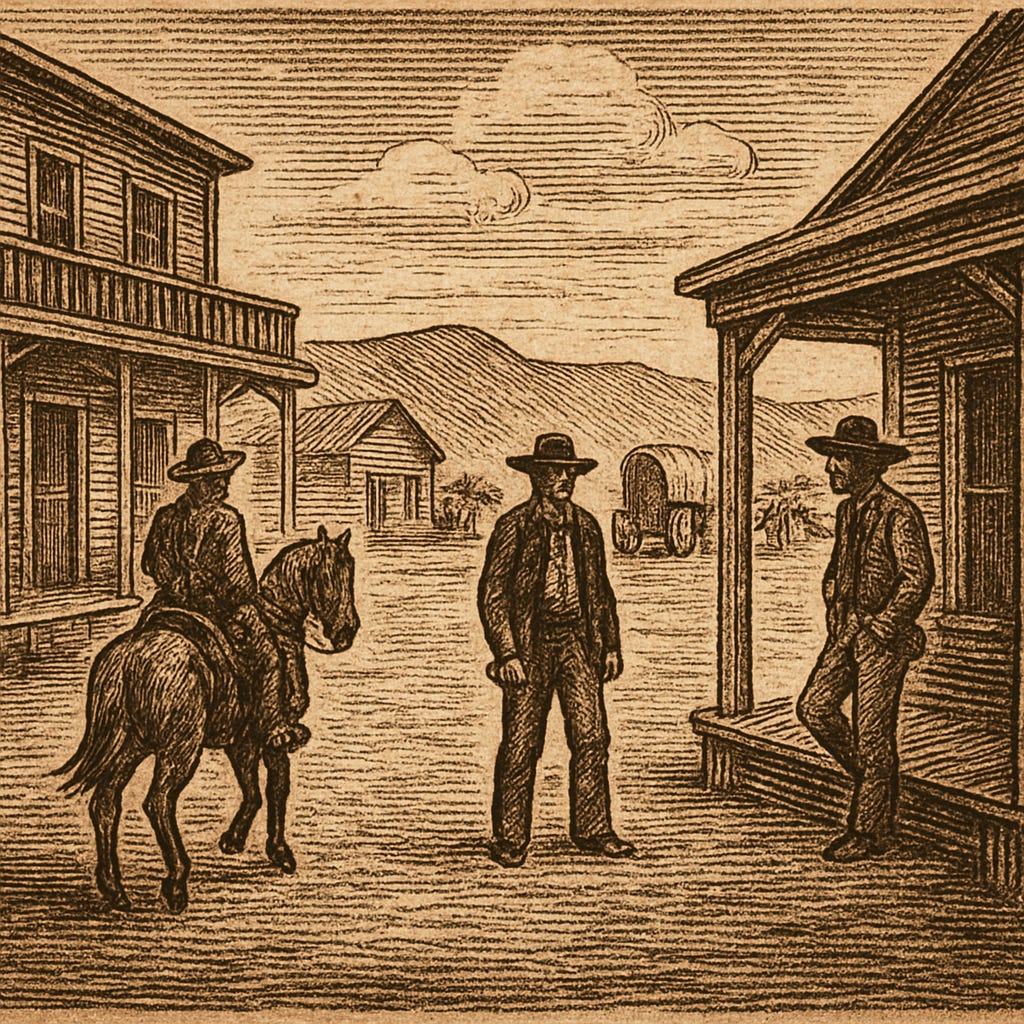What In Tarnation?
Tarnation.
What a word! My mind goes straight away to Yosemite Sam, the nemesis of Bugs Bunny who uses colorful language in the original Warner Brothers cartoons. Here’s a short highlight clip someone made:
If you’re interested in analysis of cartoons, you might want to check out
’s Substack (David, please feel free to point folks to the correct spot in the comments!). David is a regular commenter here, and we’ve had some really fun sidebar discussions about lots of topics, and whenever animation comes up, I listen and learn a little from him.Back to Sam for a moment. Clearly, he’s here to be a foil for Bugs Bunny, whom he perceives as a threat due to not being from the deep south, mainly. Bugs does little to keep the peace, though, instead provoking Sam constantly. This only infuriates Sam more, causing him to go deep into his linguistic roots, where things can feel safer when you’re threatened.
Whenever Sam is surprised, his go-to quip is, “What In Tarnation?”
It turns out that tarnation may be one of those portmanteaus—words made up when two other words are combined together into one. Portmanteaus are the mashups of the linguistic world, creating new, evocative language. The two words that may have been combined are eternal and damnation. Alternatively, some linguists think it was just short for damnation, without the eternal.
In any case, tarnation is also a minced oath, a term I can’t get enough of all of a sudden. This is when you deliberately soften profanity, like using shoot when you want to say doodypoop instead. Instead of Jesus, you might say jeez. Instead of fuck, you might say frag or frak.
Americans in the frontier regions during the 18th and 19th centuries found themselves in settlements where swearing was forbidden out of a sense of propriety, and out of a fear of being sent to hell. The belief that a single spoken phrase might condemn someone was something people took deadly seriously back then.
At the same time, there was a lot to swear about! Frontier living was fraught with danger, and carving out a living was almost always brutally tough. There were no soft hands in the wild west, and there were frequent murders or other violent crimes with very weak or nonexistent law enforcement in many cases.
It’s maybe no surprise, then, that people figured out a way to swear by not swearing.
As kids, every time my friends and I would hear one of these silly phrases or words, we immediately saw through the ruse. We imagined (and often said aloud) the actual swear word that had been perverted, so in a way it drew more attention to the underlying idea than if you just Samuel Jacksoned your way into a muthafucka.
Still, you couldn’t say those magic words out loud, or else!
Some of my favorite minced oaths include:
Gadzooks. This one is a softening of God’s hooks, referring to the nails used in crucifixion. Nails during the frontier time were commonly called hooks. You can maybe understand why this one was softened—making a direct reference to the suffering of the dominant god of the region has always been a really big no-no.
Zounds. God’s + wounds. Same kind of idea.
Gol-dang, Goshdarn, Doggone. You’re not supposed to invoke God’s name to send someone to hell, so it’s pretty similar to tarnation in that sense.
Jiminy and Criminy. When frontiersfolk heard the Latin word domine, it sounded like domminy to their ears. Jiminy and Criminy took Jesus and Christ, respectively, and mashed them up with the word the Romans used to mean lord or master.
There are others, but those are my favorites. What are yours?



Yosemite Sam, beating his way out of a pit of lions or alligators is how I mentally picture crazy shifts at the hospital.
Thank you for the shoutout, Andrew.
I publish fiction and essays at "Made From What's Not Real" (https://davidperlmutter.substack.com/) and non-fiction about animation at FOCUS! (https://focus966.substack.com/). I am having a sale on paid subscriptions this summer at both sites, by which you can purchase one for half-price, until Sept. 5. You can purchase them for each place respectively at these two links: https://davidperlmutter.substack.com/0c7331eb and https://focus966.substack.com/halfoffsale.
One obscure pseudo-profane term I encountered in some MAD magazine articles from the 1950s and 1960s is "furshlugginer". I don't know much about it but it seems to be of Yiddish origin and meant as a substitute for the other F word.